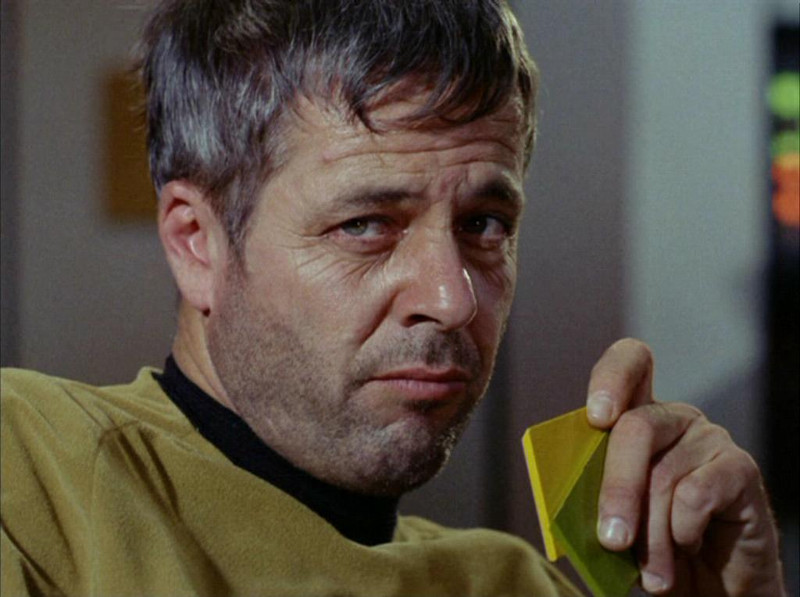 This Sunday, as everyone knows, marks the 100th anniversary of the sinking of the Titanic. So it seems fitting that we here at Channel 37 should commemmorate the moment by taking a look at the long, rich history of shipwreck stories in science fiction — a genre that, naturally, abounds in spaceships:
This Sunday, as everyone knows, marks the 100th anniversary of the sinking of the Titanic. So it seems fitting that we here at Channel 37 should commemmorate the moment by taking a look at the long, rich history of shipwreck stories in science fiction — a genre that, naturally, abounds in spaceships:
- Shipwreck by Charles Logan
- Ummmm . . .
- [*sound of crickets chirping*]
And even that one is more of a Robinson Crusoe-type story than a shipwreck. (Not to mention Robinson Crusoe on Mars, which is actually a pretty good movie.) So what’s that all about? Since the 1930s, science fiction has been awash in spaceships of every conceivable type, size, and capability. And there has been no shortage of accidents, from asteroid collisions to warp core breaches. But in terms of your classic shipwreck story, combining chivalry and self-sacrifice with survival instincts and tick-tock suspense, we have precious little — as far as I can tell.
We have plenty of stories in which humans find alien ships adrift from some disaster or another. Clearly, aliens have all kinds of problems with their ships (now there’s a new subgenre — retelling science fiction stories from the aliens’ perspective!). But for us humans, it tends to be pretty binary: either the ships work, or they just blow up completely. Not a lot of middle ground. Or if a ship does get wrecked, we don’t find it after it’s been abandoned. Let’s face it: as compelling as it was when Kirk and Co. found the USS Constellation adrift in the Classic Trek episode “The Doomsday Machine,” the blow-by-blow of the abandoning of the ship would be a great little story in its own right.What is it about science fiction that hasn’t lent itself to the disaster genre? Is it that we just have too much faith in our ships? Are they — to authors, readers, and crew alike — unsinkable? Is it that the focus on the stories of survival are too “character-centric” and not enough about science-y things?
Science fiction is experiencing a resurgence in heroic storytelling. Space opera is back in a fresh new guise, and military sf is always popular. We love our movie and TV spaceships more than ever, thanks to super-detailed CGI models. Cinematic science fiction has plenty of epic-scale disaster stories (from Meteor to Independence Day). And stories of survival at sea are among the most enduring in our literature, both fiction and nonfiction (from Moby-Dick to The Perfect Storm).Maybe it’s time we set our science-fictional sights on a classic story of spaceshipwreck?




Great post. I have a present for you guys. You have to share it. But I haven’t finished reading it yet.
There’s a lot of grist for the mill in that. Would Enemy Mine qualify?
IIRC, Enemy Mine was more like a “castaway” story, along the lines of Logan’s novel. Most of the action takes place after the action of the actual wrecking-of-the-ship part. But it’s been a long time since I’ve seen the movie (never read the novella), so I may be wrong about the relative emphasis . . .
Shh! Don’t tell anyone. But I have inside info that a Shipwreck story will be starting on Channel 37 starting May 22nd!. Just before Balticon!
The very first Star Trek pilot “The Cage” was a shipwreck story.
“The Stars My Destination” was a shipwreck story.
There are probably more in sci-fi literature than in video.
“Forbidden Planet” was somewhat of a shipwreck story.
Thanks for your comment, and sorry for the delay in responding! Maybe I’m splitting hairs by differentiating between “shipwreck” and “castaway” stories, but I would put those examples in the latter category because the action is all, or mostly, taking place after the shipboard accident that strands the protagonists. (And of course they’re all terrific stories in their own right!)
I’m thinking more about the stories of survival during a space accident. Given the perils of depressurization, power failure, corrosive or radioactive fuels, exposure to solar radiation, etc., there’s a lot of exciting things for a protagonist to deal with in the middle of a catastrophe!
Do you regard Edgar Alan Poe’s “A descent into the maelstrom” as scifi? If so, it is an early example.
I’d agree that Poe’s work could fall into the broad “speculative fiction” category, so sure! That story is more of what I have in mind, since it takes place on the ship trapped in the whirlpool. Now we just need someone to update the story to a spaceship trapped in the Antares Maelstrom . . .